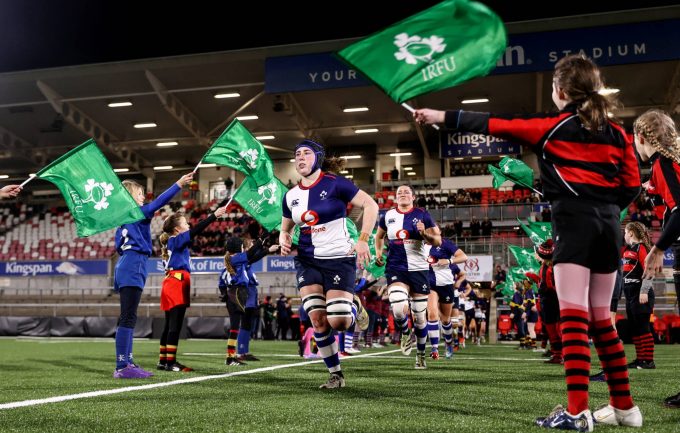Let’s start at the other end of the piece of string. This was the finishing order of the 2023 Six Nations:
England
France
Wales
Scotland
Italy
Ireland
We must start there, since it is the end goal, the raison d’être, of the newly extended Celtic Challenge. It shows the three competitors placed third, fourth and sixth. It was Ireland’s turn to finish last, and they were the union keenest on rectifying the issue.
We get a measure of their success in the final CC table before the play-offs:
Wolfhounds (I)
Edinburgh Rugby (S)
Clovers (I)
Gwalia Lighning (W)
Brython Thunder (W)
Glasgow Warriors (S)
So Ireland took the honours by being the only nation to enter both teams into Pool A of the knock-outs.
The Advantages the CC has brought
Coaching staffs have been able to assess the progress of players beyond the prospective first-choice squad, away from the hectic drama of the 6N itself.
They were given elbow-room to decide how many capped players they selected for the opening rounds. Inevitably some of these stars stood out by their excellence. One such was Emma Orr, who offers a prototype of what Scottish rugby must be hoping for in the future: a quality player perfectly happy to remain at home, not lured south to join a PWR club (not yet, anyway).
Very few games finished with a one-sided result. Players were coming together with minimum togetherness, but that is not the sole reason for the tightness of so many fixtures. There was hot rivalry in every game. Personal, team and national honour was at stake.
Above all the CC has forced any dilatory union into ensuring an improved pathway for its younger players, a feature which local critics have been very vocal about. Now we have seen 19-year-old Sadhbh McGrath honoured with the captaincy of her side. So improvements have come.
It’s still a moot point how far seasoned internationals have infuenced results. While Wolfhounds’ unbeaten record is due, in part at least, to the presence of Linda Djougang up front and Dannah O’Brien at 10, Alex Callender and Sioned Harries weren’t able to affect Brython Thunder’s results to the same extent. Rugby must be a team game after all.
I remain concerned about Scotland’s progress. Though Edinburgh have come through well to finish second, the thinness of Scottish scope is revealed in Glasgow’s halting progress. A nation cannot really hope to thrive on the presence of just two principal cities. The SRU still has hard work to do to encourage more players from all over the country to take up the game and prove their worth. Let Emma Orr, all the way from South Lanarkshire, be their guide.
Next Stage
A brief pause between the two stages gives everyone the chance to catch their breath and take stock.
We can sense a degree of doubt in the organisers’ minds as they decided on the best route forward to the play-offs. In the event we have two pools, splitting the above table into 1-3 and 4-6.
One glance at the future calendar below reveals the complications. We find four teams playing each other at home, while two others travel to a neutral ground. Six is an awkward number of competitors to deal with. But an extension to eight teams won’t work; eight isn’t divisible by three.
Saturday 17 February:
Glasgow Warriors v Brython Thunder; Scotstoun, Glasgow
Edinburgh Rugby v Wolfhounds, The Hive, Edinburgh
Saturday 24 February:
Gwalia Lighning v Glasgow Warriors; Kingspan, Belfast
Wolfhounds v Clovers; Kingspan, Belfast
Sunday 3 March:
Clovers v Edinburgh Rugby; Parc y Scarlets
Brython Thunder v Gwalia Lighning; Parc y Scarlets
The Proof of the Pudding
The 6N results will decide how successful each union has been in its approach to the CC, but head coaches must be grateful for the chance to view so many players outside last year’s national squad. And they will still have time (three weeks) to invite the best of the new crop into training sessions with the chosen few before the 6N kicks off on 23 March.
Nor should we forget the benefits brought to the coaching teams. While some, like Scott Bemand, have experience of preparing many squads for big tournaments, others will have profited from building new teams from scratch and deciding what changes, if any, to make from round to round. And even Bemand will be grateful for the chance to cast his eye over a wider catch of players as he rebuilds a team that has suffered sad reverses recently.
Memo: all the matches, past and future, can be viewed in full free of charge on rugbypass.tv









